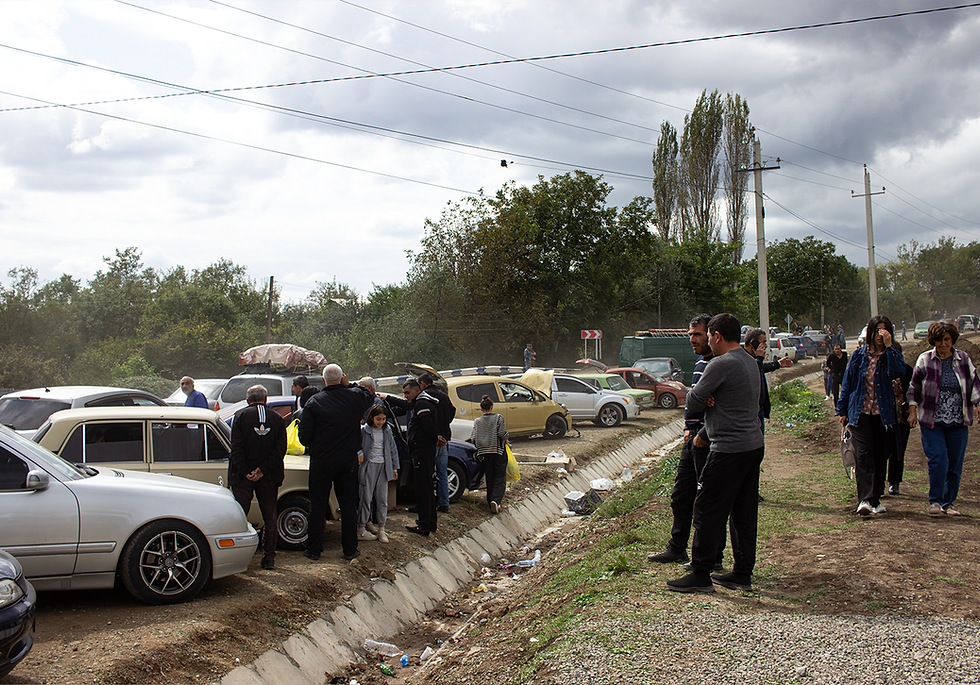Pashinyan’s Holiday Call to Erdogan Met with Reminder of Ankara’s Demands
- The Armenian Report Team

- Jun 5, 2025
- 3 min read

On June 5, Armenian Prime Minister Nikol Pashinyan spoke with Turkish President Recep Tayyip Erdogan to mark a religious holiday and discuss the future of Armenia-Turkey relations. While the conversation appeared friendly on the surface, the deeper meaning of their exchange shows the ongoing challenges facing Armenia and the wider region.
According to official reports, Pashinyan called Erdogan to wish him well on the occasion of Kurban Bayram, known internationally as Eid al-Adha, a major Muslim holiday. In return, Erdogan congratulated Armenia for hosting the upcoming European Political Community Summit in spring 2026. The two leaders also agreed to “continue the dialogue” between their countries.
But beyond these polite words lies a complex and difficult path. Turkey and Armenia have no formal diplomatic relations and closed borders—largely due to Turkey’s strong support for Azerbaijan and its refusal to recognize the 1915 Armenian Genocide, during which 1.5 million Armenians were systematically killed by the Ottoman Empire.
Erdogan’s office said the call covered both regional and global issues. Notably, Erdogan once again linked the normalization of Turkey-Armenia relations to the outcome of talks between Armenia and Azerbaijan. This has been a long-standing Turkish position—supporting Baku’s demands as a precondition for progress with Yerevan.
In recent months, Azerbaijan has insisted that any peace agreement with Armenia must include a “Zangezur Corridor”—a land route through southern Armenia to connect Azerbaijan with its exclave of Nakhijevan. This proposal is strongly opposed by Iran, which sees it as a threat to its borders, and by many Armenians, who view it as a violation of national sovereignty.

Just last week, Erdogan again promoted the idea of the corridor during a visit to Azerbaijan, saying it would help link Turkey to the wider Turkic world. For many in Armenia, this renewed pressure is seen as a threat, not a peace offer.
Pashinyan’s recent comments on the 1915 Genocide have also caused deep concern among Armenians at home and abroad. In January, he said that Armenians must “understand what happened” in 1915 and what led to the campaign for international recognition. He later told Turkish journalists that Armenia would no longer push other countries to recognize the genocide, even questioning whether such recognition contributes to stability.
These remarks have drawn strong criticism from Armenian historians, political opposition, and genocide scholars, who say Pashinyan is weakening Armenia’s historical truth and dignity in an attempt to gain favor with Turkey. Critics argue that this approach is short-sighted and dangerous, especially when Turkey still denies the genocide and has made no apology or reparations.
Many believe Pashinyan’s softening stance is part of a broader policy of appeasement—trying to win goodwill from Ankara and Baku at a time when Armenia feels increasingly isolated after the occupation of the Republic of Artsakh (Nagorno-Karabakh) in 2023. But this strategy has so far failed to produce any meaningful benefits, and the cost may be the erosion of national identity and memory.

While dialogue is important, so is standing firm on core principles. Normalizing ties with Turkey should not mean giving up the truth about the Armenian Genocide or surrendering to Azerbaijan’s territorial demands. If true peace is to come, it must be based on justice, mutual respect, and historical honesty.
Until then, Armenia must stay vigilant, protect its national interests, and speak clearly to the world—not only about its desire for peace but also its refusal to be pressured into silence.
—
Support independent reporting from the region by subscribing to The Armenian Report. Our team is funded solely by readers like you.






tài xỉu md5 mang đến trải nghiệm giải trí minh bạch nhờ áp dụng mã hóa MD5 công khai trước mỗi ván chơi. Người chơi có thể tự đối chiếu kết quả sau khi xúc xắc hoàn tất, đảm bảo không có can thiệp. Truy cập taixiumd5 us com hoặc đường link https://taixiumd5.us.com/ để tham gia không gian giải trí rõ ràng và đáng tin cậy.
e2bet xây dựng hệ thống giải trí đa nền tảng, nơi người chơi được tận hưởng hàng trăm trò chơi hấp dẫn với tỷ lệ thưởng cực cao. nhờ có e2betclb com, mọi giao dịch trở nên tiện lợi, tốc độ nạp rút nhanh và bảo mật thông tin tuyệt đối.
Liên minh KJC mang trong mình sứ mệnh nâng tầm giải trí trực tuyến khu vực châu Á, ứng dụng bảo mật tiên tiến và thanh toán chuẩn quốc tế. Với mạng lưới kjc lgbt, người chơi thỏa sức trải nghiệm sân chơi uy tín. Truy cập địa chỉ chính thức để bắt đầu hành trình tại https://kjc.lgbt/
Maybe should be investigated the fact that is Pashinian really Armenian?